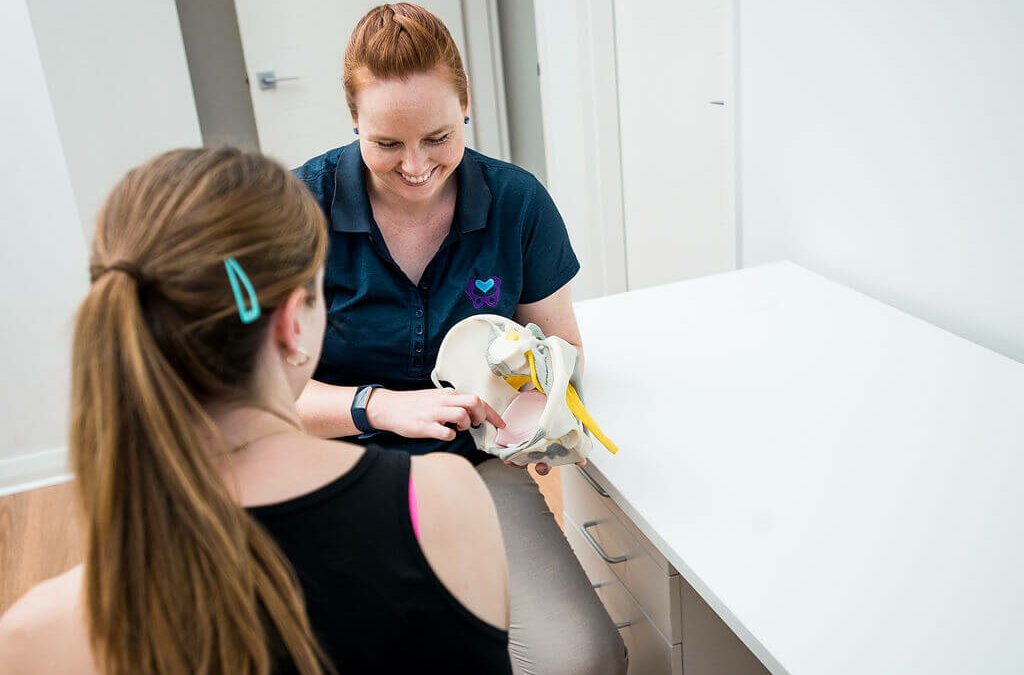Pelvic Organ Prolapse (POP) is the descent of the pelvic organs resulting from a reduction in support from multiple structures. Women with prolapse will often report a heaviness, dragging, lump or bulge around their vagina. POP happens for a variety of reasons and there are a number of risk factors:
– Pregnancy
– Childbirth – particularly a baby >4kg at birth, forceps birth, extended 2nd stage of labour or perineal tears
– Increasing age
– Hormonal changes
– Female gender
– Caucasian ethnicity
– Overweight
– History of constipation
– Smoker
If you’re like any of my clients, you will be looking at that list with eyes wide open saying ‘well I tick most of those boxes!’ The reality is, in Western society, that is definitely the case.
Prolapse is something that happens gradually over time, despite it often feeling like a sudden onset. I often hear:
“I went to the gym and I felt something move.”
“We were having sex and something didn’t feel right. We both felt it.”
“I was in the shower and felt something was there. I have never felt that before.”
“I have this heaviness in my pelvis that is worse at the end of the day.”
Unlike continence (where you are either leaking or not) many women will have some form of prolapse but not know it until they become symptomatic. There are a few things to consider here:
– Prevention, prevention, prevention! Manage any modifiable risk factors – excess weight, constipation, smoking
– If you have had a baby and wish to return to high impact exercise, I would strongly recommend seeing a C&WH Physio prior to returning so any prolapse and the current status of your pelvic floor can be assessed. Check out this link if you need more information.
– If you become symptomatic, get it sorted straight away. It’s not one of those things to ‘see how it goes’. Unfortunately, it won’t get better on its own.
– There is no harm getting your pelvic floor checked if you tick most of the risk factor boxes above. The earlier a prolapse is identified, the better. Also, if something happens down the track, you have a baseline measurement of when you were last assessed.
Prolapse is graded from Stage 1 to 4. Your C&WH Physio will be able to advise what stage your prolapse is. From there a management plan can be devised.
The most common FAQ is: Will I need surgery?
Not necessarily, particularly if your prolapse is a stage 1 or 2. There are many, many things that can be done conservatively to help manage the symptoms.
For those that do opt for surgery or do need surgery, there is still a whole lot of pelvic floor training that needs to be completed afterwards, so there really is no way out of it – do pelvic floor training and prevent surgery OR have surgery and then complete pelvic floor training. Saying it like that doesn’t generally make the choice hard!
Embodied Confidence uses evidence-based practice to advise women regarding how to manage their prolapse. This will generally include manage lifestyle factors and devising an individualised pelvic floor muscle training program. Results are generally seen quite quickly and then a maintenance plan is established. There are other options available as well from a medical perspective and Leonie can guide you through these.
Now is the time to live with Embodied Confidence. Call Leonie at Embodied Confidence on 9143 1510 or book online.

